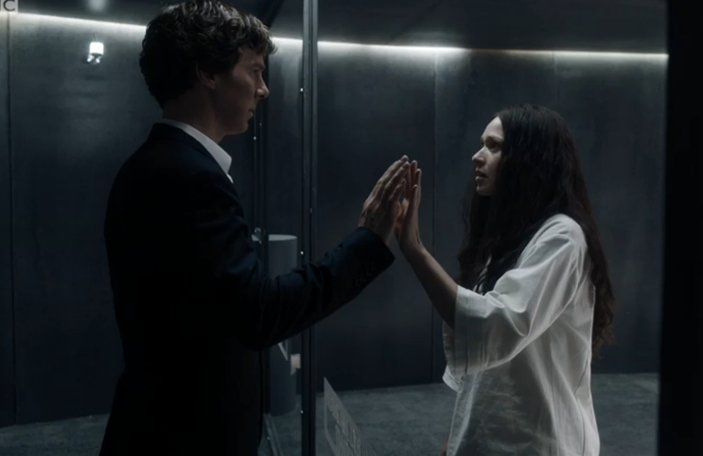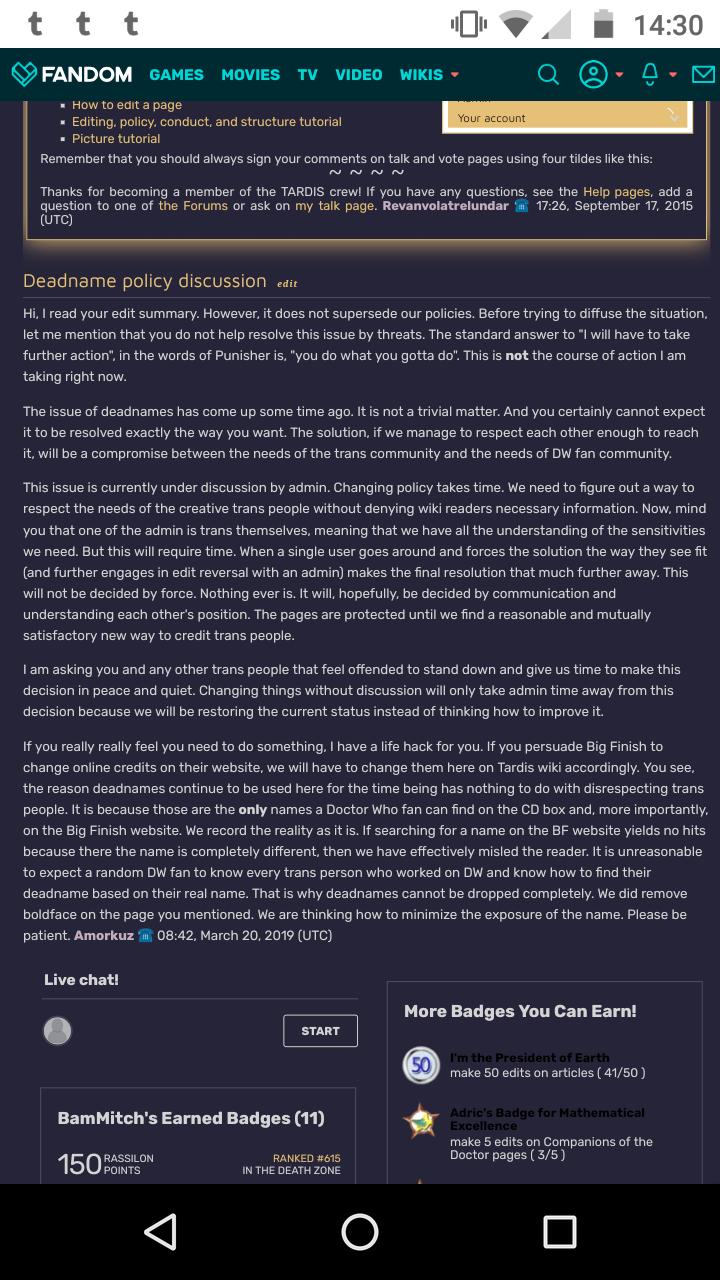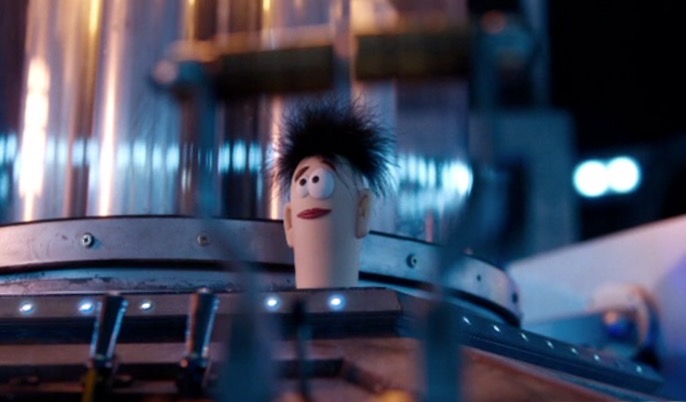Fundraising Update
The Patreon hit $600 this morning. Which means that I’m posting this after informing my boss that I’ll be stepping down at the end of the semester and not, as previously discussed, applying for a promotion. I’ve got four weeks to serve out because obviously I’m not going to be a complete asshole about this, but in less than a month I am going to be a full-time writer again.
Which… holy shit guys. When I set up that $200 a week goal, I thought it was a longshot. Not something we were going to blow through in thirty-six hours. I’m stunned and, uncharacteristically, at a loss for words. There are a lot of things I love about this job, but the feeling of support that you all give me is by far the thing that most often stuns me into a humbled and grateful silence.
That said, I noted in comments on my last post that I was not in any sort of immediate financial insecurity. This fact just changed. The Patreon is currently at $601, just a dollar a week above the threshold at which this adventure is affordable. Patreons go down over time. So while we’ve made an absolutely massive accomplishment that I’m so, so thankful for, we also need to keep going. I’ve set up two more Patreon goals. One at $650 a week, which marks the point where I can breathe a sigh of relief. If I’d had any idea that $200 was a 36 hour goal and not, as I assumed, a really hard slog that I optimistically might make before a job offer came through, this is where I actually would have set the “quit my job” line. It means that I can lose a big patron and not immediately be plunged into a crisis. It means that I can go decent chunks of time without raising alarms about the Patreon level. Above $600 is “not a crisis.” Above $650 is comfortable.
There’s also a $700 goal, which marks the point where the Patreon is 100% replacing the day job income and I’m not relying on Kickstarter money to make the math work. This means that I can avoid situations like what happened with the Eruditorum 7 Kickstarter where to fulfill it I’m going to have to run the Volume 8 Kickstarter, and that I can use any profit that’s remaining after a Kickstarter goes through for long-term savings projects like a house or a vacation or a vagina.
These are both really important thresholds too, even if they aren’t as flashy as quitting my job. And so to help us get to them, I’ve created two new Patreon tiers. For $10 a post, you can join in on quarterly voice chat hangouts. Who knows what these will be? I’ll do Q&As, I’m sure, but I might also drag in special guests, or look at all playing a game together, or maybe live-watching something. We’ll see, but it’ll be fun.
And then, at $25 a post, comes the really fun one: custom books.…

 I want to start with an update to
I want to start with an update to  It’s January 15th, 2017. Clean Bandit have been knocked off of number one by the dawn of the Sheeraning, as Ed Sheeran’s “Shape of You” and “Castle on the Hill” debut at number one and two respectively, heralds of his forthcoming album that will, on its release in mid-March, lead to Sheeran occupying 14 of the top 15 slots in an absolutely unprecedented (and before the streaming era impossible ) turn of events. JP Cooper, Starley, and Jax Jones featuring Raye also chart.
It’s January 15th, 2017. Clean Bandit have been knocked off of number one by the dawn of the Sheeraning, as Ed Sheeran’s “Shape of You” and “Castle on the Hill” debut at number one and two respectively, heralds of his forthcoming album that will, on its release in mid-March, lead to Sheeran occupying 14 of the top 15 slots in an absolutely unprecedented (and before the streaming era impossible ) turn of events. JP Cooper, Starley, and Jax Jones featuring Raye also chart. CW: Discussions of Jimmy Savile and sexual assault.
CW: Discussions of Jimmy Savile and sexual assault. It’s January 1st, 2017. Did you guess that Rockabye were at number one with “Clean Bandit”? If so, well done. Zara Larsson, Little Mix, Bruno Mars, and Wham also chart, the latter with a post-Christmas surge for “Last Christmas.” In news, US troops withdraw from Afghanistan, Obama imposes sanctions against Russian intelligence agencies for interfering with the election, and Nevada’s marijuana legalization goes into effect.
It’s January 1st, 2017. Did you guess that Rockabye were at number one with “Clean Bandit”? If so, well done. Zara Larsson, Little Mix, Bruno Mars, and Wham also chart, the latter with a post-Christmas surge for “Last Christmas.” In news, US troops withdraw from Afghanistan, Obama imposes sanctions against Russian intelligence agencies for interfering with the election, and Nevada’s marijuana legalization goes into effect. As it’s come up a few times and I’ve thus far only said it on Twitter, I figured I should make a quick statement on the site. Short form: I have decided going forward that I will no longer be covering Big Finish material on the site or in my books. There are a handful of existing obligations I’ll still fulfill. I’ve promised Andrew Hickey I’ll cover Doctor Who and the Pirates in the revised Volume 6, and while I’m going to swap out one or two of the mooted 7th Doctor Big Finish essays for things on other topics, there’ll still be a few of those. And I’m not going to go around deleting already written Big Finish essays. But starting with Volume 8, none of the new essays added to any of the book collections are going to be on Big Finish material.
As it’s come up a few times and I’ve thus far only said it on Twitter, I figured I should make a quick statement on the site. Short form: I have decided going forward that I will no longer be covering Big Finish material on the site or in my books. There are a handful of existing obligations I’ll still fulfill. I’ve promised Andrew Hickey I’ll cover Doctor Who and the Pirates in the revised Volume 6, and while I’m going to swap out one or two of the mooted 7th Doctor Big Finish essays for things on other topics, there’ll still be a few of those. And I’m not going to go around deleting already written Big Finish essays. But starting with Volume 8, none of the new essays added to any of the book collections are going to be on Big Finish material. When another editor attempted to follow up on this decision, they got the reply shown to the right here.…
When another editor attempted to follow up on this decision, they got the reply shown to the right here.…